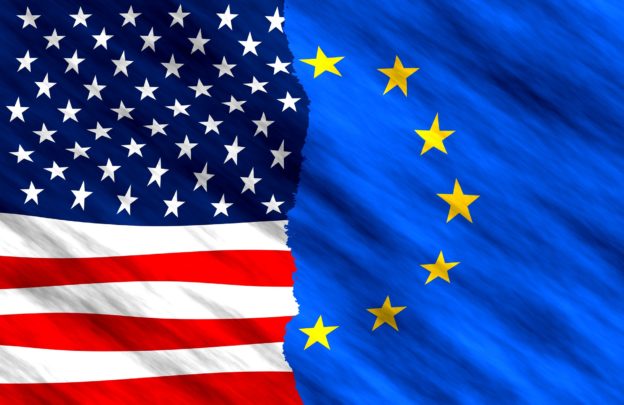On 27 July, the United States and the European Union announced the conclusion of a preliminary agreement setting the stage for further technical negotiations expected to lead, in the coming weeks, to a comprehensive trade deal. While the final details remain to be clarified, both Ursula von der Leyen’s speech and the White House press release have outlined its key elements.
From a tariff perspective, as confirmed by the Presidential Proclamation issued by the White House on July 31, the United States is establishing an effective minimum duty rate of 15% (including both the general column 1 duty rate under the HTSUS and any additional duties) on the vast majority of European exports, particularly in sensitive sectors such as automobiles, semiconductors, and pharmaceuticals. Pursuant to this Presidential Proclamation, the treatment of products varies depending on the applicable duty rate. For goods of the European Union subject to a column 1 (general) duty rate under the HTSUS of less than 15%, an additional ad valorem duty is applied so as to bring the combined (general and additional) duty rate to 15%. Conversely, where the column 1 duty rate is already equal to or greater than 15%, no additional duty is imposed, and the applicable rate remains unchanged. This 15% rate thus serves as a minimum threshold for tariff application.
The treatment of pharmaceutical products remains uncertain: while they have been mentioned as falling under the cap, US statements suggest they may be excluded from the deal. At this stage, our understanding is that the conventional US tariff rates (around 4.8% on average before Trump II) remain legally applicable. The situation remains unclear, as Ursula von der Leyen referred to a “single, clear, non-cumulative rate” with respect to the 15% cap.
The agreement is intended to provide companies with greater predictability, although its economic impact remains to be assessed. In return, the EU will eliminate its customs duties on US industrial products, reducing them from an average of 2.5% to 0%. “US industrial product” should be understood as a product of US origin.
The text introduces stricter rules of origin to prevent free riding, underscoring the central role that origin will play in implementing this agreement.
It also provides for full duty exemptions in several strategic sectors, including aerospace, certain chemicals, generic pharmaceuticals, semiconductor manufacturing equipment, selected agricultural products, and critical raw materials. The list of products benefiting from this preferential regime could be expanded as negotiations progress.
With respect to steel and aluminum, both parties reaffirm their commitment to cooperate in tackling global overcapacity. While the 50% duty remains in place, preferential tariff quotas are being introduced, with the prospect of gradual reductions.
The agreement also includes a major energy component: the EU commits to purchasing €750 billion worth of US liquefied natural gas (LNG) over three years to secure its supply, while €600 billion in European investments are planned in the United States, particularly in defense and advanced technologies such as AI-related semiconductors. Points of friction remain, as Donald Trump has mentioned several unresolved issues, leaving room for possible future adjustments. Negotiations continue to be challenging for pharmaceuticals and semiconductors, two sectors where the imposition of additional duties has not been ruled out.
The challenge now lies in turning this political declaration into concrete measures. No deadline has been set so far, with only technical discussions planned in the coming days or weeks.
While awaiting further details, mastering customs fundamentals has become a critical requirement for operators engaged in transatlantic trade:
- Tariff Classification: A thorough analysis ensures compliance and helps identify potential preferential regimes or exemptions, in a context where additional duties have been introduced.
- Origin of Goods: US trade policy places strategic emphasis on origin, distinct from mere provenance. The US rules of origin retain a degree of subjectivity, reinforcing the need for expertise. EU rules, recently shaken by the Harley-Davidson case law, must also be carefully managed.
- Customs Valuation: Transfer pricing and the First Sale Rule are among the mechanisms available to exporters to the US to optimize the customs value and thus lower the taxable base.
Our Customs-International Trade team remains at your disposal for any questions or support you may need regarding these topics.
Contact : dscustomstrade@dsavocats.com / fendler@dsavocats.com

